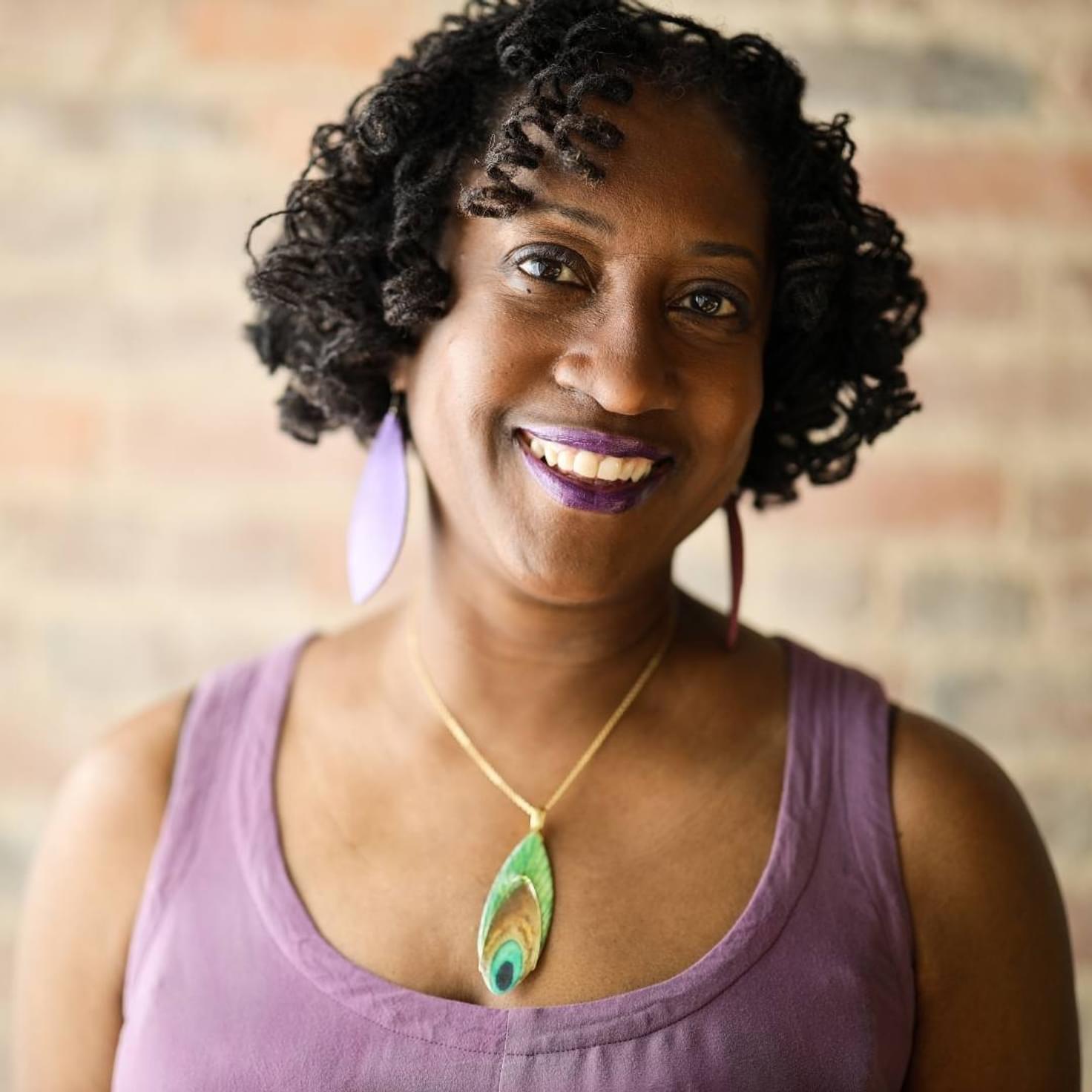
Words by Tess Becker
Finding a community where you belong can be incredibly difficult, especially in spaces that are dominated by one particular race or gender. This is something Lisa Woolfork found out firsthand.
Lisa was an active part of the sewing community in her area, and also an active Black Lives Matter-Charlottesville organizer. In 2017, she was a firsthand witness to the White Nationalist riot in Charlottesville, locked in the church across the street. One day later, she witnessed the car attack against counter-protesters of the White Nationalist riot.
Soon after, Lisa found herself ostracized from the sewing community she took part in – so she decided to make her own community: a community for Black women who sew to be accepted and seen.
In came Black Women Stitch. “What I needed was a place where I could fully be myself and where I could fully be whole,” Lisa tells Smiley News.
Black Women Stitch was founded in 2018 and serves Black sewing enthusiasts with everything from sewing studios, live events, and even a podcast called Stitch Please. They even did a lot of virtual work through the pandemic to help provide a community.
“One of the things I was excited about in starting the organization was to create spaces of visibility and support for Black women, girls, and femmes who do sewing, quilting, garments, and apparel," says Lisa. "We've talked to lots of different people on the podcast, but the organization itself really is determined to center and celebrate Black women who are doing work with needle and thread.”
Lisa was a well-practiced sewer long before she started her organization, learning it from the other women in her family. As she came into her adulthood she viewed sewing less as a hobby and more as something to filter her creative energy through.
“I didn't really aggressively pursue sewing on my own until I became an adult and was studying in graduate school,” Lisa says. “I had always thought about sewing and quilting as very sustaining practices, and really great stress relievers, and really great ways to harness creativity.
“I'm excited to create and demonstrate the continuity of creativity throughout the generations,” she continues. “I believe that sewing and textile arts are ancestral crafts, that these are things that we have been doing for hundreds of years – long before the internet and the maker movement started getting people into making and crafting things.”
The response to the organization has been incredibly positive as well, with people expressing how nice it was to have a place that can represent them.
“We created a Black space that we hosted at Quilt con which is the Modern Quilt Guild’s annual convention,” Lisa says. “There were folks who had said, ‘I have been coming to this conference for the last 10 years and this is I've never seen this many happy Black people.’”
Lisa hopes to maintain cultural connectivity with the people she’s trying to serve, fearing that getting too large too quickly would form a disconnect. Instead, she’s aiming for slow, organic, incremental growth.
“I've got to make sure that we are on the same page," she says, "and so it does mean things move a little bit more slowly. But as long as I'm moving with integrity, that is the most important thing for me."
Find out more and support Black Women Stitch.